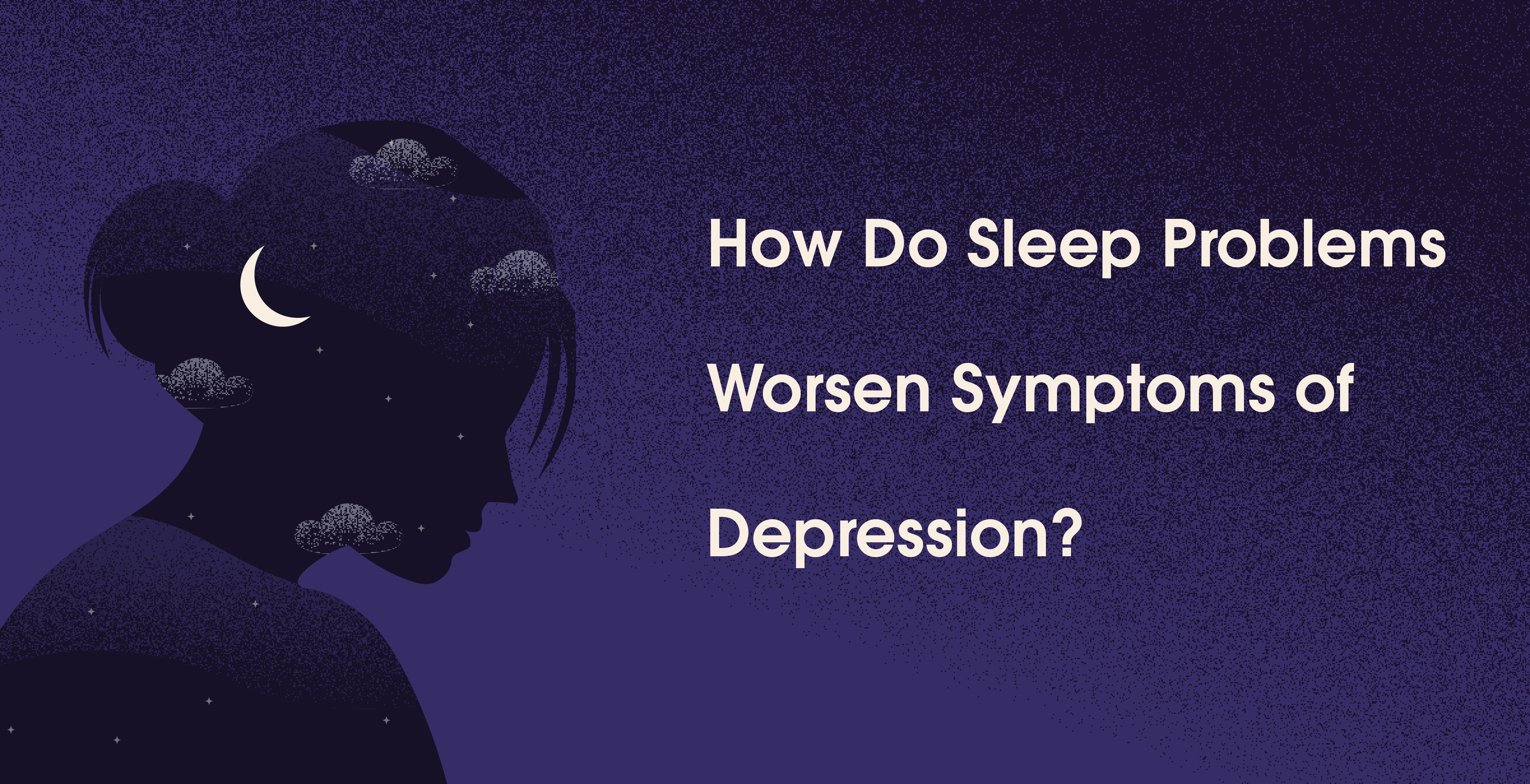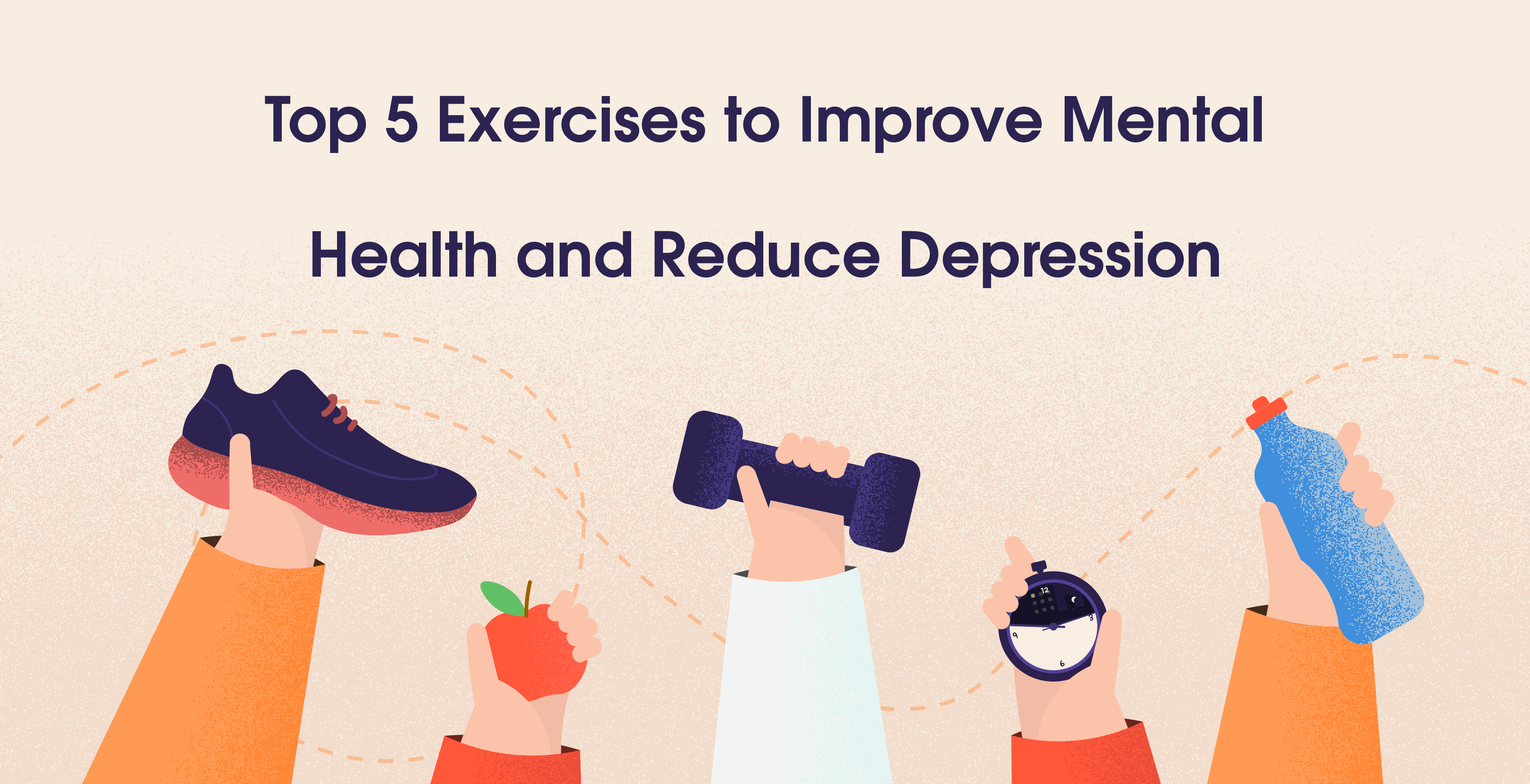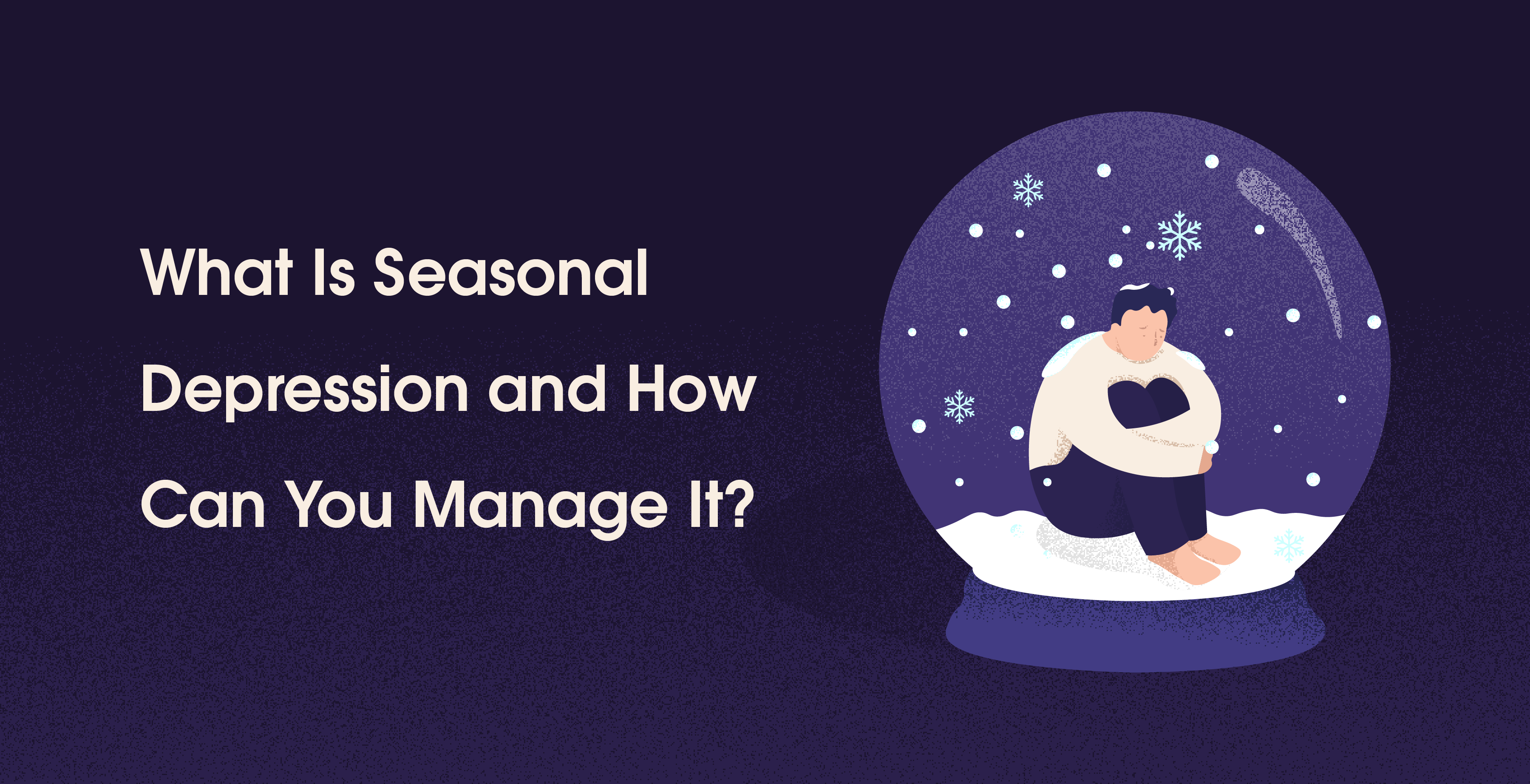Depression & Diabetes - Is there a link?
Jan 13, 2024
Ashima Raizada



Table Of Contents
Just found out your HbA1c numbers are through the roof? Feeling down and can't seem to shake it off? You're definitely not in this boat alone. Handling diabetes, with all its ups and downs, often goes hand in hand with emotional rollercoasters. It's not just a random thought - the numbers prove it. People with diabetes are 2-3 times more likely to experience depression. Shockingly, only about 25-50% of diabetic people feeling this way seek help. So, why is this connection so pronounced, and what can we do about it? Let's unravel the complexities.
Highlights
Individuals with diabetes are 2-3 times more likely to experience depression due to both stress and physiological reasons.
Blood sugar fluctuations can cause mood swings, anxiety, confusion, and other mood-related symptoms due to interference with brain neurotransmitters.
Managing diabetes-related depression involves both medical consultations (endocrinologists and psychologists) and participation in support and prevention programs.
A balanced diet, regular exercise, good sleep hygiene, stress management, and avoiding harmful substances are essential for managing both conditions.
Diabetes & Depression - What's the connection?
Managing diabetes can sometimes feel like a full-time job, enough to bring anyone down. When you're down, you might slack off on taking care of yourself - maybe munching on too many sweets or sipping a bit too much alcohol - which is bad news for anyone with diabetes.
But there's more to this story. Beyond the stress of handling diabetes, there's lots of science linking these two - from how our brain works to how our body functions. Diabetes may cause or exacerbate symptoms of depression at a physiological level too.
So let's first see how diabetes and depression are related. Both the brain and the body require a steady supply of glucose - let's look at the brain first. The brain uses A LOT of energy. Even though your brain is only 2% of your body's total weight, it uses 20% of your body's energy. In order to maintain this activity level, the brain needs blood sugar - and lots of it! When you have diabetes, the blood sugar levels to the brain may be much higher or much lower than normal. Without a steady supply of glucose, brain function can be impaired in many ways such as:
Mood Swings
If blood sugar fluctuates, the brain's neurotransmitters that regulate mood can go off-balance, leading to mood fluctuations.
Depressive Feelings
If blood sugar remains unbalanced for a prolonged period, those mood swings can result in even greater can affect neurotransmitter dysregulation activity, potentially leading to prolonged, persistent feelings of sadness or hopelessness.
Anxiety
Low blood sugar can also trigger the release of stress hormones leading to greater feelings of nervousness and restlessness.
Difficulty Concentrating
Fluctuations in blood sugar can interfere with the brain's ability to process information, making it hard to focus on a single task.
Confusion
When blood sugar drops too low, the brain doesn't get the fuel it needs, leading to disorientation or confusion.
Decreased Motivation
High blood sugar can affect the brain's reward pathways, causing decreased enthusiasm or motivation to engage in activities.
Panic Attacks
Rapid changes in blood sugar can stimulate a surge of adrenaline, triggering panic or intense anxiety in some individuals.
Changes in sleep patterns
Unusual blood sugar variations can disrupt your sleep, leading to either insomnia or oversleeping. Furthermore, diabetes can result in more frequent bathroom trips, and nighttime glasses of water adding further stress to nighttime sleep and tipping the balance of your sleep routine.
Of course, it's not just the brain that suffers from dysregulated glucose. Many bodily symptoms of depression can also manifest including:
Fatigue
The body's inability to use glucose for energy can leave you feeling constantly drained, fueling this symptom of depression.
Headaches
Lack of consistent blood sugar causes blood vessels in the brain to constrict and expand, causing headaches.
Elevated Heartbeat
Low sugar gives less energy to the heart, making it beat faster. With depression in the mix, this can feel more intense, adding to the stress.
Tummy Troubles
Fluctuations in blood sugar can throw our gut off balance, causing digestive issues. This discomfort can exacerbate depression since gut disturbances can lead to mood changes.
Weight Changes
The body banks on glucose for future energy. If left unmanaged, it can lead to weight changes. Depression intensifies this further. It might cause overeating or a lack of appetite, further affecting blood sugar and weight. (1)(2)(3)
What To Do About Diabetes-Related Depression?
Living with diabetes-related depression can sometimes feel overwhelming, but there's always a path to brighter days. Here are some helpful tools you can consider:
Diabetes Management
Endocrinologist Consultation
An endocrinologist specializes in conditions like diabetes. Regular appointments can help tailor your treatment plan, advise on the latest medications, and ensure you're on the right track.
Diabetes Prevention Programs (DPP)
Consider enrolling in a DPP which offers structured courses and support to manage and possibly prevent the progression of diabetes. These programs often cover topics like nutrition, exercise, and blood glucose monitoring. They can be invaluable for understanding and managing your condition.
Mental Health Support
Psychologist / Psychiatrist
A psychologist can offer therapeutic interventions such as talk therapy, while a psychiatrist can assess and prescribe medications if deemed necessary.
Support Groups
Engaging with peers in local or online support groups can be therapeutic. Sharing experiences and coping mechanisms often provides relief and a sense of community.
Medication Guidance
Medications are potent tools in managing both diabetes and mental health, but they come with their own considerations:
Stay Informed
Always be proactive about understanding the potential side effects of any medication. Open communication with your healthcare provider is crucial.
Regular Monitoring
Ensure that mental health medications do not adversely interact with your diabetes management regimen, and vice versa.
In case you want to know more about medications and treatment options here it is - Medication and treatments for Prediabetes
Lifestyle Changes
Focus on Nutrition
A diet rich in essential nutrients can influence mood and stabilize blood sugar levels. Omega-3 fatty acids, magnesium, and B vitamins, can mitigate depressive symptoms. As always, monitoring carbohydrate intake is vital for diabetes control. It's best and easiest to first try simple things like ensuring you eat your fiber first and keep your breakfast high-protein and savory.
Regular Physical Activity
Exercise not only releases endorphins, natural mood lifters that can alleviate depressive symptoms, but it also improves insulin sensitivity, aids blood sugar management, and helps manage weight. Aerobic exercises such as swimming and dancing, plus exercise routines such as strength training enhance blood sugar control and depression. (4)(5)
Stress Management
Elevated cortisol levels can spike blood sugar and impact mental health. Including practices like tai-chi or meditation can help manage your stress levels.
Improving Sleep Hygiene
Establishing a regular sleep routine with good sleep hygiene can stabilize mood and improve insulin sensitivity, benefiting both mental health and metabolic health. This includes getting the morning sun and making sure to wrap up dinner 3-4 hours before bed.
Limit Alcohol and Caffeine
While alcohol can worsen depressive symptoms and have unpredictable effects on blood sugar, caffeine can perpetuate anxiety and disrupt sleep. Limiting their intake can help improve your symptoms significantly.
Social Connection
Building and maintaining social connections can combat feelings of loneliness and depression while also providing a support system for healthier lifestyle choices vital for diabetes management.
Avoid Smoking
Smoking can intensify depressive symptoms over time and heighten the risk of diabetes-related complications, especially cardiovascular issues.
Stay Hydrated
Proper hydration supports mood stability, cognitive function, and consistent blood sugar levels. (6)
Conclusion
Noticed a high HbA1c and feeling a bit off? You're not the only one. Diabetes can mess with your mood, but there's a science to it. Good news: there are ways to manage. Doctors can help with the diabetes bit, and there are mental health experts for the emotional side. Don't forget about the daily stuff too - like eating better, moving a bit more, and getting good sleep. Toss in some support from groups or friends who understand, and you're setting yourself up for better days. It's a journey, but with the right tools and people around, you're on the right track.
References
Just found out your HbA1c numbers are through the roof? Feeling down and can't seem to shake it off? You're definitely not in this boat alone. Handling diabetes, with all its ups and downs, often goes hand in hand with emotional rollercoasters. It's not just a random thought - the numbers prove it. People with diabetes are 2-3 times more likely to experience depression. Shockingly, only about 25-50% of diabetic people feeling this way seek help. So, why is this connection so pronounced, and what can we do about it? Let's unravel the complexities.
Highlights
Individuals with diabetes are 2-3 times more likely to experience depression due to both stress and physiological reasons.
Blood sugar fluctuations can cause mood swings, anxiety, confusion, and other mood-related symptoms due to interference with brain neurotransmitters.
Managing diabetes-related depression involves both medical consultations (endocrinologists and psychologists) and participation in support and prevention programs.
A balanced diet, regular exercise, good sleep hygiene, stress management, and avoiding harmful substances are essential for managing both conditions.
Diabetes & Depression - What's the connection?
Managing diabetes can sometimes feel like a full-time job, enough to bring anyone down. When you're down, you might slack off on taking care of yourself - maybe munching on too many sweets or sipping a bit too much alcohol - which is bad news for anyone with diabetes.
But there's more to this story. Beyond the stress of handling diabetes, there's lots of science linking these two - from how our brain works to how our body functions. Diabetes may cause or exacerbate symptoms of depression at a physiological level too.
So let's first see how diabetes and depression are related. Both the brain and the body require a steady supply of glucose - let's look at the brain first. The brain uses A LOT of energy. Even though your brain is only 2% of your body's total weight, it uses 20% of your body's energy. In order to maintain this activity level, the brain needs blood sugar - and lots of it! When you have diabetes, the blood sugar levels to the brain may be much higher or much lower than normal. Without a steady supply of glucose, brain function can be impaired in many ways such as:
Mood Swings
If blood sugar fluctuates, the brain's neurotransmitters that regulate mood can go off-balance, leading to mood fluctuations.
Depressive Feelings
If blood sugar remains unbalanced for a prolonged period, those mood swings can result in even greater can affect neurotransmitter dysregulation activity, potentially leading to prolonged, persistent feelings of sadness or hopelessness.
Anxiety
Low blood sugar can also trigger the release of stress hormones leading to greater feelings of nervousness and restlessness.
Difficulty Concentrating
Fluctuations in blood sugar can interfere with the brain's ability to process information, making it hard to focus on a single task.
Confusion
When blood sugar drops too low, the brain doesn't get the fuel it needs, leading to disorientation or confusion.
Decreased Motivation
High blood sugar can affect the brain's reward pathways, causing decreased enthusiasm or motivation to engage in activities.
Panic Attacks
Rapid changes in blood sugar can stimulate a surge of adrenaline, triggering panic or intense anxiety in some individuals.
Changes in sleep patterns
Unusual blood sugar variations can disrupt your sleep, leading to either insomnia or oversleeping. Furthermore, diabetes can result in more frequent bathroom trips, and nighttime glasses of water adding further stress to nighttime sleep and tipping the balance of your sleep routine.
Of course, it's not just the brain that suffers from dysregulated glucose. Many bodily symptoms of depression can also manifest including:
Fatigue
The body's inability to use glucose for energy can leave you feeling constantly drained, fueling this symptom of depression.
Headaches
Lack of consistent blood sugar causes blood vessels in the brain to constrict and expand, causing headaches.
Elevated Heartbeat
Low sugar gives less energy to the heart, making it beat faster. With depression in the mix, this can feel more intense, adding to the stress.
Tummy Troubles
Fluctuations in blood sugar can throw our gut off balance, causing digestive issues. This discomfort can exacerbate depression since gut disturbances can lead to mood changes.
Weight Changes
The body banks on glucose for future energy. If left unmanaged, it can lead to weight changes. Depression intensifies this further. It might cause overeating or a lack of appetite, further affecting blood sugar and weight. (1)(2)(3)
What To Do About Diabetes-Related Depression?
Living with diabetes-related depression can sometimes feel overwhelming, but there's always a path to brighter days. Here are some helpful tools you can consider:
Diabetes Management
Endocrinologist Consultation
An endocrinologist specializes in conditions like diabetes. Regular appointments can help tailor your treatment plan, advise on the latest medications, and ensure you're on the right track.
Diabetes Prevention Programs (DPP)
Consider enrolling in a DPP which offers structured courses and support to manage and possibly prevent the progression of diabetes. These programs often cover topics like nutrition, exercise, and blood glucose monitoring. They can be invaluable for understanding and managing your condition.
Mental Health Support
Psychologist / Psychiatrist
A psychologist can offer therapeutic interventions such as talk therapy, while a psychiatrist can assess and prescribe medications if deemed necessary.
Support Groups
Engaging with peers in local or online support groups can be therapeutic. Sharing experiences and coping mechanisms often provides relief and a sense of community.
Medication Guidance
Medications are potent tools in managing both diabetes and mental health, but they come with their own considerations:
Stay Informed
Always be proactive about understanding the potential side effects of any medication. Open communication with your healthcare provider is crucial.
Regular Monitoring
Ensure that mental health medications do not adversely interact with your diabetes management regimen, and vice versa.
In case you want to know more about medications and treatment options here it is - Medication and treatments for Prediabetes
Lifestyle Changes
Focus on Nutrition
A diet rich in essential nutrients can influence mood and stabilize blood sugar levels. Omega-3 fatty acids, magnesium, and B vitamins, can mitigate depressive symptoms. As always, monitoring carbohydrate intake is vital for diabetes control. It's best and easiest to first try simple things like ensuring you eat your fiber first and keep your breakfast high-protein and savory.
Regular Physical Activity
Exercise not only releases endorphins, natural mood lifters that can alleviate depressive symptoms, but it also improves insulin sensitivity, aids blood sugar management, and helps manage weight. Aerobic exercises such as swimming and dancing, plus exercise routines such as strength training enhance blood sugar control and depression. (4)(5)
Stress Management
Elevated cortisol levels can spike blood sugar and impact mental health. Including practices like tai-chi or meditation can help manage your stress levels.
Improving Sleep Hygiene
Establishing a regular sleep routine with good sleep hygiene can stabilize mood and improve insulin sensitivity, benefiting both mental health and metabolic health. This includes getting the morning sun and making sure to wrap up dinner 3-4 hours before bed.
Limit Alcohol and Caffeine
While alcohol can worsen depressive symptoms and have unpredictable effects on blood sugar, caffeine can perpetuate anxiety and disrupt sleep. Limiting their intake can help improve your symptoms significantly.
Social Connection
Building and maintaining social connections can combat feelings of loneliness and depression while also providing a support system for healthier lifestyle choices vital for diabetes management.
Avoid Smoking
Smoking can intensify depressive symptoms over time and heighten the risk of diabetes-related complications, especially cardiovascular issues.
Stay Hydrated
Proper hydration supports mood stability, cognitive function, and consistent blood sugar levels. (6)
Conclusion
Noticed a high HbA1c and feeling a bit off? You're not the only one. Diabetes can mess with your mood, but there's a science to it. Good news: there are ways to manage. Doctors can help with the diabetes bit, and there are mental health experts for the emotional side. Don't forget about the daily stuff too - like eating better, moving a bit more, and getting good sleep. Toss in some support from groups or friends who understand, and you're setting yourself up for better days. It's a journey, but with the right tools and people around, you're on the right track.
References
Table Of Contents
Table Of Contents
Table Of Contents
Read More


Mar 28, 2025
Sayfali Rawlani


Feb 6, 2025
Sayfali Rawlani


Jan 28, 2025
Sayfali Rawlani



Company
Copyright © 2025 trst health. All right reserved.

